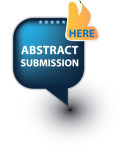
Yoon-Bong Hahn
Chonbuk National University, South Korea
Title: Selective detection of glucose, cholesterol and urea with metal oxide nanostructures based field effect transistors array biosensors
Biography
Biography: Yoon-Bong Hahn
Abstract
Nanotechnology revolution has led to the nano fabrication of sensor devices for rapid and specific identification of chemical/ biological species. However, the development of multiplexed nanoscale biosensor for simultaneous detection of different analytes still remains a major challenge at the nanotechnology frontier. It is well recognized that diabetes mellitus is a metabolic disorder resulting in an abnormal blood glucose level and activation of several metabolic pathways related to inflammation and apoptosis events. Heart disease and stroke due to excess cholesterol in blood is the leading cause of death and disability, and kidney failure due to excess urea is caused by urea cycle disorders. We have developed metal-oxide nanostructures based, integrated field-effect transistors (FETs) array biosensor with simultaneously immobilizing GOx, ChOx and Ur enzymes on three separated FET arrays. In this lecture, we report a novel straight forward approach for simultaneous and highly selective detection of multianalytes (i.e., glucose, cholesterol and urea) with the FETs array biosensor without interference in each sensor response. Compared to analytically measured data, performance of the FETs array biosensor is found to be highly reliable for rapid detection of multianalytes in mice blood, serum and blood smaples of diabetic dogs. The development of an integrated, low-cost FETs array biosensor will produce quick detection under critical patient conditions, early identification of disease/disorder, and also have an enormous impact on the future generations.

